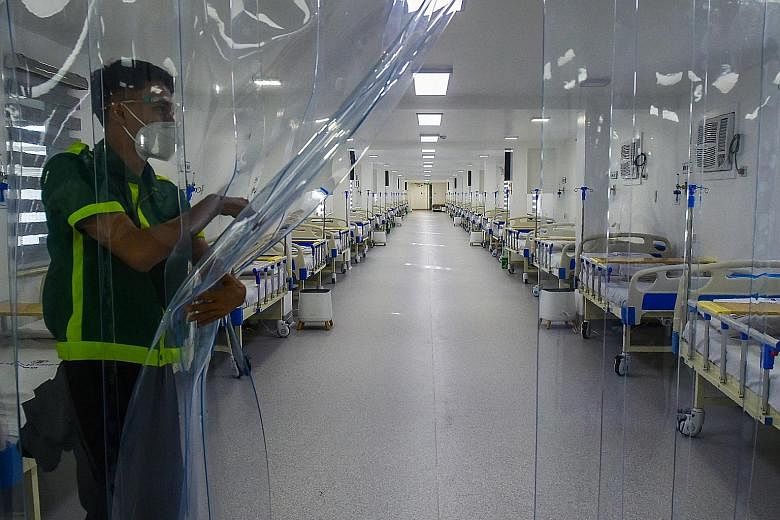The Philippines is now classified as "low risk" overall as it continues to see a drop in coronavirus infections, health officials said yesterday.
Latest figures showed that the number of Covid-19 cases shrank by as much as 9 per cent over the past two weeks. Before then, it was growing at 15 per cent.
"The risk classification nationally is already at low risk," Dr Alethea de Guzman, director of the Health Ministry's Epidemiology Bureau, told reporters.
The falling case numbers buck the trend seen in wealthier nations and other countries in the region such as Indonesia and Malaysia, which are now grappling with fresh waves of variant-fuelled outbreaks.
With more than 1.4 million cases and a death toll of close to 25,000, the Philippines still has the second-worst outbreak in South-east Asia, after Indonesia. But it has been recording 4,000 to 6,000 infections a day in recent weeks, a sharp fall from as many as 15,000 during the peak of a deadly outbreak in March and April.
The Alpha variant, first reported in Britain, remains the more dominant strain in the Philippines.
Except for four regions - Western and Eastern Visayas, Davao region and Central Mindanao - the rest of the country is now classified as presenting mostly low to moderate risks.
Metro Manila, which spans 16 densely populated cities and is home to some 13 million people, has seen Covid-19 cases fall to around 500 a day.
It had recorded as many as 8,000 cases daily when it was hit hard by a surge that began in December, when the Alpha variant was first detected, and peaked in April.
Back then, hospitals were so inundated with patients that many died of Covid-19 before they could be wheeled into an emergency room. Some died inside tents set up at hospital carparks, or while trying to self-quarantine inside their cars.
The government placed Metro Manila and four nearby provinces - home to a quarter of the nation's population - on hard lockdown from March 29 to April 10.
It has since been gradually easing quarantine curbs as the number of cases begins to drop and more people get vaccinated.
Dr de Guzman said the country has been lucky as it has managed to keep the highly contagious Delta variant, first identified in India, at bay with tight border restrictions.
Fewer than two dozen cases of this variant have been found, mostly carried by Filipinos returning home from working abroad.
Asked if the Health Ministry was just not detecting the full extent of the Delta variant's spread, she replied: "If a variant of concern comes in, I really feel we will see that. It will present itself. We will see it in a spike in cases."
Dr de Guzman said cases remain high though, and she is not ruling out another surge. "This is buying us a bit more time. We don't want the entry of variants of concern to push cases again to levels that will overwhelm capacity," she said.
But the Delta variant "eventually will probably come in", she said.
"You just need one super-spreader event, and it is possible there will be another spike in cases… But while it is not yet here, we still have time to ensure strategies are in place so that the health system can take on whatever surge will happen next in the Philippines," she said.

